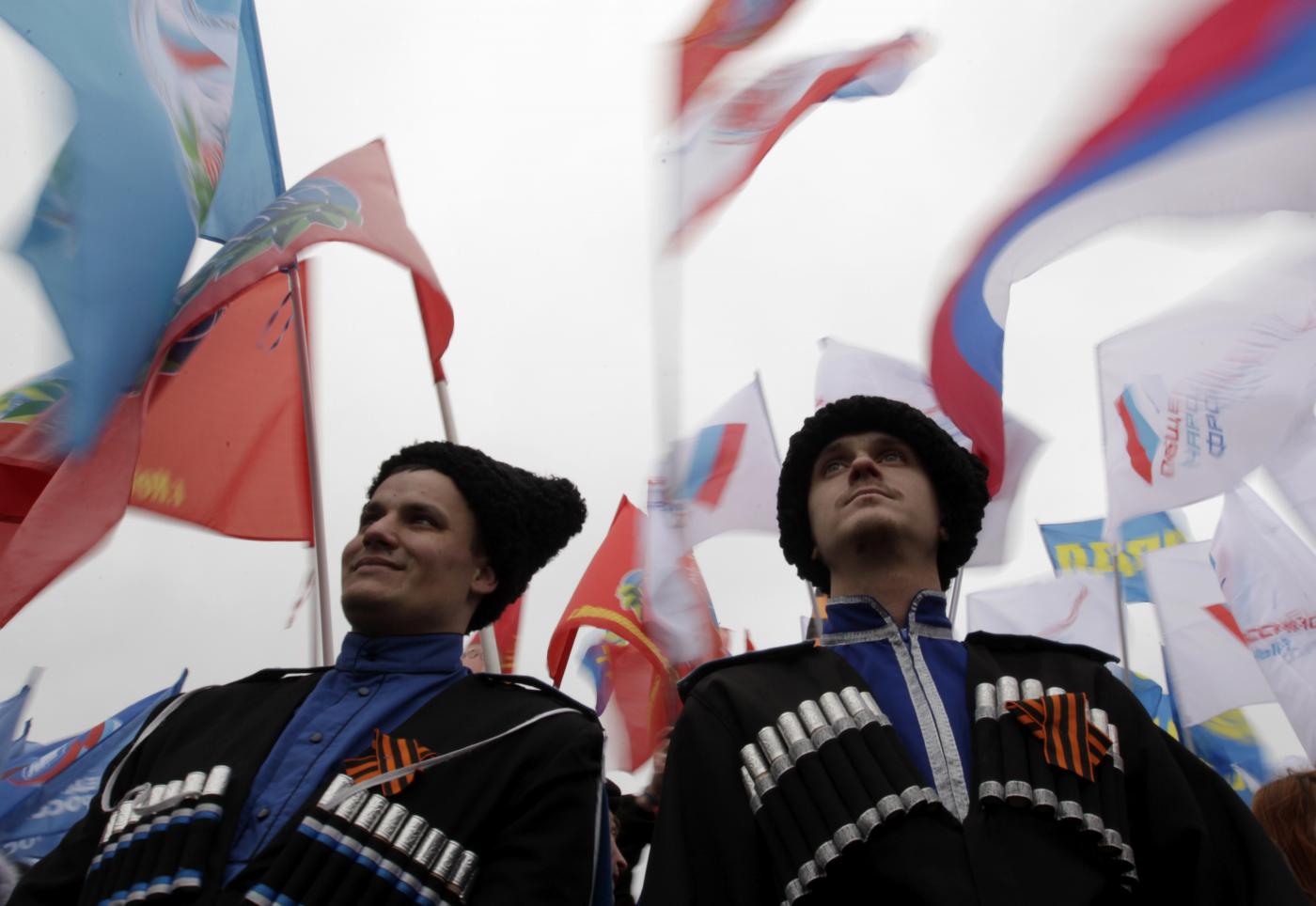PBS: Escaping Eritrea … [Read More...] about ካብ ውሽጢ ቤት ማእሰርታት ኤርትራ
Putin’s Patriotism Playbook
What’s Russian Nationalism Got to Do With It?

It may not seem remarkable for an authoritarian such as Russian President Vladimir Putin to identify patriotism as his country’s “national idea,” as he did to a group of Russian entrepreneurs earlier this month. “There can be no other,” he said of the collective identity Russians have long sought to define. “We need to talk about it constantly, at all levels.”
Putin’s exhortation is notable, however, because it taps into a long-standing debate in his country’s intellectual history over how to develop a coherent and specifically Russian collective consciousness. Given Moscow’s involvement in many of the conflicts the West seeks to settle, assessing the Kremlin’s potential for cooperation requires understanding not only the Russian president’s immediate motivations but also the political culture behind them—one that Putin has exploited to serve his own ambitions.
LOOKING WEST, LOOKING EAST
The search for a unifying concept is hardly unique to Russia, but it has had a particularly strong hold on the country. Russian thinkers have traditionally defined Russian national identity in relation to the West, approaching European culture either as a model or as a foil. That pattern began in the second half of the fifteenth century, when Tsar Ivan III consolidated power in the principality of Muscovy and renounced allegiance to the Tatar rulers of the Golden Horde, a remnant of the Mongol Empire to which Muscovy had previously paid tribute. As the late historian Edward Keenan has argued, Muscovy’s growing wealth and power prompted Ivan’s court to search for an imperial style befitting its new status.
Putin appears to have condensed Russia’s national idea into a single, nebulous word.
Elite Muscovites first looked to the culture of the Tatars, dressing in Turkic robes and calling themselves “white khans.” When that failed to impress European leaders, Ivan began copying European princes instead, hiring Italian architects, for example, to rebuild the Kremlin. Over the following three centuries, Russia played catch-up to the West, sometimes prompted by catastrophes such as its defeat in the Crimean War, which encouraged wide-ranging reforms under Tsar Alexander II, among them the liberation of Russia’s serfs in 1861.

In the nineteenth century, Russia’s central debate was between “Westernizers,” who sought to bring the country closer to Europe, and “Slavophiles,” who insisted that Russia had gone astray under the Westernizing reforms of Peter the Great. In 1833, Tsar Nicholas I, seeking to consolidate his particularly authoritarian rule after a failed revolt on his coronation day, consolidated Slavophile views into an official national doctrine that defined the three pillars of the Russian state as orthodoxy, autocracy, and nationality: values that were aimed chiefly at encouraging support for the tsar.
Nearly two centuries later, after the Soviet Union had collapsed and left an ideological void in its place, Russian President Boris Yeltsin established a commission to create a new national idea, a vision for a bright future that would help bury communism. That attempt was widely dismissed as unnecessary for a democratic society that was determining its own path, however fitfully. Then came Putin, who as president tapped directly into Slavophile views by blaming Russia’s ills on the West and promising to restore an imagined past greatness, especially ahead of his reelection in 2012. In a manifesto published that year, Dmitry Rogozin—a deputy prime minister whom Putin may be grooming as a successor—published a tract that at times read as though it could have been written by a nineteenth-century Slavophile. Once again, Rogozin argued, Russia’s great promise was under threat from Western-looking traitors, as it had been under Peter the Great and former Soviet leader Mikhail Gorbachev in earlier centuries. But if nineteenth-century Slavophiles often criticized the tsar, Rogozin strove mainly to boost his boss by appealing to nationalists: Putin, he argued, was the latest in a long line of distinguished Russian visionaries who could protect the country from ruin. Accusing the United States of hatching “hegemonic plans” that would divide the world in a new struggle for resources, Rogozin also wrote that a “fifth column” of Russian liberals, following Washington’s orders, was working to split the “great Russian people.” By the end of the year, a presidential commission had proposed a theory of a special Russian civilization distinct from the West’s, drawing on the writings of the nineteenth-century Slavophile Nikolay Danilevsky, a hard-line nationalist who believed that separate “historical cultural types” were as incompatible as separate biological species. The project’s aim was not to undertake genuine national soul-searching but to suggest that Russia’s unique civilization, under Putin’s stewardship, could subsume the country’s many potentially subversive ethnic and national subcultures.

Four years later, Putin appears to have condensed that national idea into a single, nebulous word. In many countries, official exhortations to “patriotism” suggest common political values, however vaguely defined. In today’s Russia, where the dominant state value is the maintenance of Putin’s rule, the Kremlin uses the term more instrumentally: to rally support for the president and suggest that any official action should be accepted as long as it advances his aims. For his own part, Putin has been acting on that brand of patriotism for years, amassing enormous amounts of wealth for himself and his inner circle at the expense of ordinary Russians.
WHAT RUSSIA CAN DO FOR PUTIN
What are the foreign policy implications of this new and instrumental vision of national identity? To begin with, it suggests that Putin often acts in his own interest, not in his country’s. Those who believe the only path to a deal in Syria lies through Moscow, for example, often assume that the main goal of Putin’s intervention has been to increase Russia’s influence in the Middle East. In fact, by tapping Russia’s wealth and isolating Moscow on the international stage, Putin is prioritizing his own power over his country’s long-term health.

